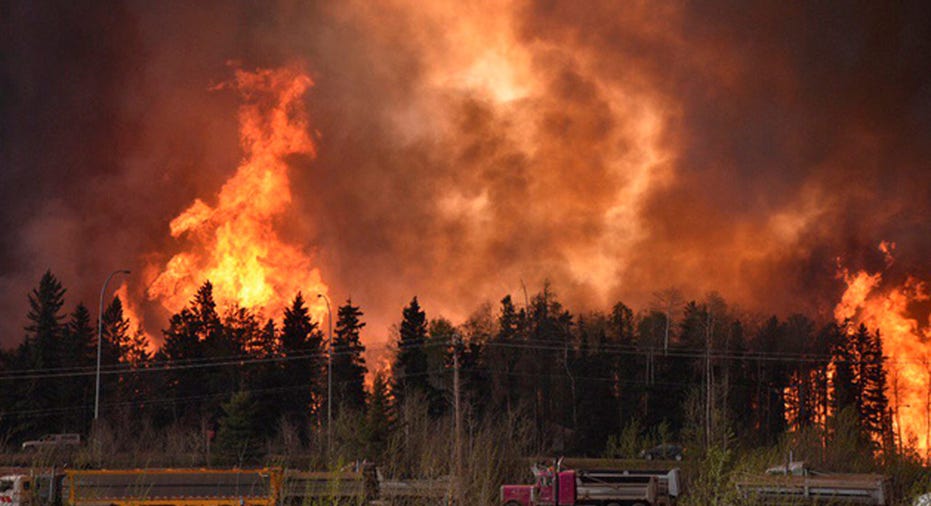Oil Jumps as Canada Fire, Libya Violence Unleash Supply Fears

Oil prices jumped about 2 percent on Thursday, resuming their rally from last week, as a raging wildfire cut production from Canada's oil sands region and escalating Libyan violence raised more worries about immediate oil supplies than a longer-term glut.
While the oil sands facilities are not in the fire's path, the wildfire that raged unchecked in the city of Fort McMurray in Alberta knocked out as much as a third of the nation's daily crude capacity and closed some major pipelines.
At least 640,000 barrels per day of capacity was offline as part of precautionary measures on Thursday, according to Reuters' calculations.
In Libya, the state's already crippled oil production was at further risk from a stand-off between eastern and western political factions that prevented a Glencore cargo from loading.
The combined outages appeared to give oil a new lease of life after crude prices lost steam earlier this week from April's 20 percent gain, although some said the relief could be temporary as OPEC continues to pump at or near record highs.
"I'm not sure either of these two events are going to be enough to sustain the rebound off the lows we've seen this week," said John Kilduff, partner at New York energy hedge fund Again Capital.
"The Canadian blaze, horrific as it is, is far south of the real producing fields to cause real lasting damage to production there. The Libyan barrels weren't really on the market anyway."
Brent futures were up 78 cents, or 2.2 percent, at $45.40 a barrel by 12:49 p.m. EDT (1649 GMT).
U.S. crude's West Texas Intermediate (WTI) futures gained $1.04, or 2.4 percent, to $44.81.
Both benchmarks rose more than $2 at the session highs before paring gains on what traders said was likely profit-taking.
Some cited market intelligence firm Genscape's report of a stockpile build of 1.35 million barrels at the Cushing, Oklahoma delivery hub for WTI futures.
Concerns over reduced Canadian supplies to the U.S. prompted
Brent's premium over WTI <CL-LCO1=R> to briefly vanish as the U.S. market traded at a premium, before WTI returned to its narrowest discount in six weeks against the European benchmark.
Prices for prompt supplies of U.S. crude also gained more than barrels for later delivery, with the discount, or "contango," for front-month June over second month July <CLc1-CLc2> narrowing to its smallest in seven months.
Some analysts said the fallout from the Canadian inferno was being underestimated.
Randy Ollenberger, analyst at BMO Capital Markets in Calgary, said while the fire should affect only about 150,000 bpd piped to the United States, the actual loss in exports could be 400,000 bpd as Canadian producers give priority to domestic refineries by cannabalizing other crude headed to the U.S. as well.
"That will all come out of the U.S., you won't be starving the Canadian refiners," he said.
London-based PVM said of the 4.5 million bpd that Canada produces, 3.4 million goes to the United States. "The situation is clearly very serious."
(By Barani Krishnan; Additional reporting by Amanda Cooper in LONDON; Editing by Marguerita Choy)



















